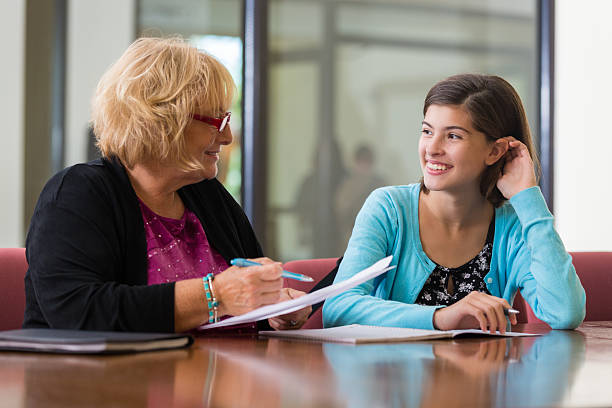The state of counselling in international schools
Counselling in any school demands a host of diverse talents to juggle everything that is thrown at you: Writing recommendation letters, supporting children in crisis, providing academic guidance to students, the list of responsibilities can seem daunting to any educator.
In international schools, counsellors often support their communities in integral ways, providing the necessary structure for students who may grow up more isolated given the nature of these environments. Many refer to international schools as “bubbles” because they are more disconnected from natural rhythms of the rest of the country, which can be an isolating experience for some students explains Cheryl-Ann Weekes, a counsellor with International Community School of Abidjan.
Given these circumstances, “You can’t put a price on good counselling,” says international advisor Rachel Knowles. In her experience, she witnessed the payoff of good counselling in her own family. When they will begin their search for a new community in the future, “It will be my first question when I go to our next school…asking schools about their counselling team.”

Navigating change
With Mental Health Awareness Month already upon us, the importance of social and emotional support systems has never been greater in learning communities. As schools look toward the future of education, they know these are times with unprecedented levels of depression, anxiety, and isolation issues.
While counsellors provide much needed support for mental health challenges students face, the role of counsellors is also to navigate changes in the school community, guiding students through these micro and macro shifts.
In the case of coronavirus, the transition to online learning was enormously disruptive. But counsellors, alongside their colleagues in schools, pulled much of the weight demanded by students. Unsurprisingly, many counsellors reported higher numbers of students in crisis, while maintaining contact with families, which can be a time-consuming process.
With mental health presenting as more important than ever, students who come from diverse cultural experiences need intentional social and emotional counselling.

Counselling an international community
Unfortunately, these invaluable team members don’t always receive the priority in international schools that counsellors have come to expect from government schools. In a Teacher Horizons’ survey, candidates reported that international schools tend to prioritise the role of school counsellors less than schools in their home countries.
While this is true at some schools, it may not be the case in all international schools. Weekes tells Teacher Horizons that her work as a counsellor—Weekes has worked in a range of schools in Egypt, Ethiopia, Jamaica, Dominican Republic, Thailand, and Cote d’Ivoire—has been fulfilling. And compared to her time advising in the United States, counselling in international environments has fewer challenges.
Small things like the ease of meeting students throughout the day and fewer systemic barriers against students in international schools, make Weekes’ counselling job easier abroad. With the added benefit of experiencing incredible opportunities to travel and explore the world, which Teacher Horizons can help facilitate by connecting counsellors to positions around the globe.
One particular challenge for counsellors working in international education face, emerges from the cultural disconnect some students have growing up in these types of global environments. Often referred to as “third culture kids”, these young people may not have a connection to a singular home country. While these students can develop a better understanding of the world, they don’t necessarily see themselves in their communities. Counsellors need to think about these experiences that colour student’s perspectives when working in these environments.
“That’s part of the richness of international schools,” says Weekes. “You can have children who have lived in more countries than the adults, who connect with a particular country even though that’s not where their family is from…The traditional sense of home does not apply.”

Balancing good guidance with families’ expectations
For a variety of reasons, parents look towards schools’ counselling team when deciding what is best for their children. Of course, parents want their children to receive social and emotional support, but an ever-growing demand of international school parents is the desire to secure university admissions for their students.
While some schools divide the workload of counsellors (university & career guidance and social & emotional support) between more than one professional, often one person assumes all these responsibilities. Other times, schools will assign a counsellor to the primary school and another to the secondary school to handle these two different groups of students.
The university guidance aspect of counselling, or counsellors that focus on colleges and careers, requires a broad area of knowledge about the many different options available to students in international schools. The application process can vary widely for different English-medium higher education programs and that doesn’t even include the array of other options students might pursue outside of university.
College guidance remains a top priority for international schools because students’ acceptance into well-known universities around the world makes for a strong recruitment strategy. Many parents and students have fixed ideas about what constitutes a “good university”, which is something counsellors like Weekes work hard to dispel.
“You should be finding the university that is the best fit for you,” Weekes tells her students who insist on going to a brand name school that others will recognize.
Advising in international schools offers counsellors enormous opportunity for professional growth, personal adventure and unique challenges. Individuals hoping to work with this diverse student population can connect with an international advisor today.



